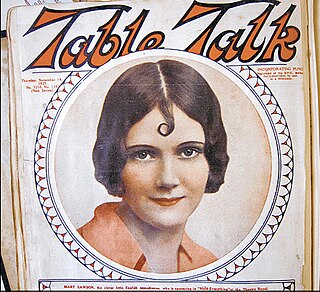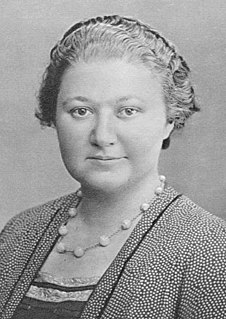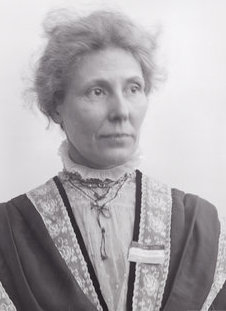 W
WSir Percy Alden was a British social worker, land reformer and radical Liberal Party politician.
 W
WAlbert Allick Bowlly was a Mozambican-born South African–British vocalist and jazz guitarist, who was popular during the 1930s in Britain. He recorded more than 1,000 songs.
 W
WRobert Byron was a British travel writer, best known for his travelogue The Road to Oxiana. He was also a noted writer, art critic and historian.
 W
WCaptain Stanley Cockerell AFC was a British World War I flying ace credited with seven aerial victories. He later became a test pilot for Vickers and attempted the first flight from Cairo to Cape Town.
 W
WElsie Joy Davison was a Canadian-born British aviator and airline director. She started flying herself in 1929. After becoming the country's first female director of an aircraft company in 1936, she died serving with the Air Transport Auxiliary in 1940, becoming the first female British aviator to die in World War II.
 W
WAlbert George Dolphin was posthumously awarded the George Cross for the heroism he displayed on 7 September 1940. He was working as an emergency hospital porter when a bomb fell on kitchens at the South Eastern Hospital, killing four nurses and injuring others. Dolphin hurried to rescue a nurse who was trapped by fallen masonry and threw himself across her to protect her as a damaged wall gave way. Dolphin was killed, aged 44, but the nurse, though severely injured, survived due to his action. The award was noted in The London Gazette of 17 January 1941.
 W
WLawrence Charles Eastman DCM, MM was an English cricketer. He played for Essex between 1920 and 1939.
 W
WMargaret Fairweather was a British aviator and one of the first eight women members of the Air Transport Auxiliary (ATA). She was the first woman to fly a Supermarine Spitfire.
 W
WLuis Fontés was a British racing driver of Brazilian parentage who, along with John Stuart Hindmarsh, won the 1935 24 Hours of Le Mans for the Lagonda automobile company and won the inaugural Limerick Grand Prix in 1935 in an Alfa Romeo. He also held a pilot's licence after learning to fly at Reading Aerodrome, Berkshire, UK, and entered his own Miles Hawk Speed Six racing aeroplane in the prestigious King's Cup Air Race in 1935. Fontés later briefly served as an Air Transport Auxiliary ferry pilot during World War II but was killed on 12 October 1940 while delivering a Vickers Wellington Mk1C bomber to an RAF Aircraft Storage Unit at Llandow in South Wales. The Le Mans Lagonda M45R survives in the Dutch National Automobile Museum at The Hague and the aeroplane was owned and raced for many years postwar by the late Ron Paine but is now owned by The Shuttleworth Collection, UK.
 W
WKenneth Cecil Gandar-Dower was a leading English sportsman, aviator, explorer and author.
 W
WWilliam James Tatem, 1st Baron Glanely, known as Sir William Tatem, Bt, between 1916 and 1918, was a Cardiff ship-owner and thoroughbred racehorse owner and breeder.
 W
WLouisa Eva Gould was a Jersey shopkeeper and a member of the British resistance movement in the Channel Islands during World War II. From 1942 until her arrest in 1944, Gould sheltered an escaped Soviet slave worker known as Feodor Polycarpovitch Burriy on the island of Jersey. Following a trial, she was sent to the Ravensbrück concentration camp where she was gassed to death in 1945. In 2010 she was posthumously named a British Hero of the Holocaust.
 W
WSir Vandeleur Molyneux Grayburn was the chief manager of the Hongkong and Shanghai Banking Corporation from 1930 to 1943. He was the most powerful financier in the Far East in the 1930s, and took an important role in establishing Hong Kong dollar as the official currency of the colony. During the Japanese occupation of Hong Kong in World War II, Grayburn was arrested for providing monetary and logistics aid to military prisoners and bank employees held hostage, imprisoned, and later died at Stanley Prison.
 W
WJane Mathison Haining was a Scottish missionary for the Church of Scotland in Budapest, Hungary, who was recognized in 1997 by Yad Vashem in Israel as Righteous Among the Nations for having risked her life to help Jews during the Holocaust.
 W
WLydia Cecilia Hill, known as Cissie Hill or Cecily Hill, was an English cabaret dancer notable for being a favourite of Ibrahim, Sultan of Johor and for being briefly engaged to him. A new Art Deco house, Mayfair Court, was funded for her in Herne Bay, Kent, by the Sultan. She was killed during World War II in her native Canterbury at the age of 27 in a German airstrike. There is an elaborate, marble monument on her grave in Herne Bay cemetery, Eddington, paid for by the Sultan.
 W
WLeslie Howard Steiner was an English actor and film maker. He also wrote many stories and articles for The New York Times, The New Yorker, and Vanity Fair and was one of the biggest box-office draws and movie idols of the 1930s.
 W
WEdward Maurice Berkeley Ingram CMG, OBE was a British diplomat and civil servant.
 W
WAmy Johnson was a pioneering English pilot who was the first woman to fly solo from London to Australia.
 W
WKenrick Reginald Hijmans Johnson, known as Ken "Snakehips" Johnson, was a swing band leader and dancer. He was a leading figure in black British music of the 1930s and early 1940s before his death while performing at the Café de Paris, London, in the Blitz during the Second World War.
 W
WJohn Wodehouse, 3rd Earl of Kimberley,, styled Lord Wodehouse from 1902 to 1932, was a British peer and Liberal politician. He was a champion polo player.
 W
WMary Elizabeth Lawson was a stage and film actress during the 1920s and 1930s. In addition to her performances on stage and screen, Lawson was known for her romantic affairs, including with tennis player Fred Perry and her future husband, the married son of the Dame of Sark. Lawson and her husband died in the Second World War during a German bombing raid on Liverpool.
 W
WOlga Menchik Rubery was a Czech–British female chess master.
 W
WVera Menchik was a Russian-born British-Czechoslovak chess player who became the first women's world chess champion. She also competed in tournaments with some of the world's leading male chess masters, with occasional successes including two wins over future world champion Max Euwe.
 W
WMarie Naylor was a British artist and militant suffragette.
 W
WWilliam Lutley Sclater was a British zoologist and museum director. He was the son of Philip Lutley Sclater and was named after his paternal grandfather, also William Lutley Sclater.
 W
WWalter Spratt was an English professional footballer who played as a full-back in The Football League for Manchester United and Brentford. Born in Birmingham, he began his career with Rotherham Town and made guest appearances for Clapton Orient during the First World War. After leaving Brentford in 1921, he played for Sittingbourne for a year before ending his career with Elsecar Main.
 W
WWilfred Carlyle Stamp, 2nd Baron Stamp, MA, ACA was a son of the British banker Josiah Stamp, 1st Baron Stamp. He holds the record for holding a peerage for the shortest length of time.
 W
WCharles Henry George Howard, 20th Earl of Suffolk, 13th Earl of Berkshire, was an English bomb disposal expert who was also an earl in the Peerage of England, belonging to the ancient Howard family. He was styled Viscount Andover until 1917. He is most famous for being responsible for rescuing a team of French nuclear scientists and the entire world stockpile of heavy water from France to England in the face of the imminent French defeat in 1940.
 W
WSir Eric Teichman was a British diplomat and orientalist.
 W
WGertrude Eileen Trevelyan was an English novelist. She is the first woman to be awarded the Newdigate prize.
 W
WJane Winstone (1912–1944) was a New Zealand aviator. She was born in Whanganui, New Zealand in 1912.
 W
WMary Helen Young was a Scottish nurse and resistance fighter who helped British servicemen escape from Nazi-occupied France during World War II. She was imprisoned by the Gestapo and put to death at Ravensbrück concentration camp in 1945.